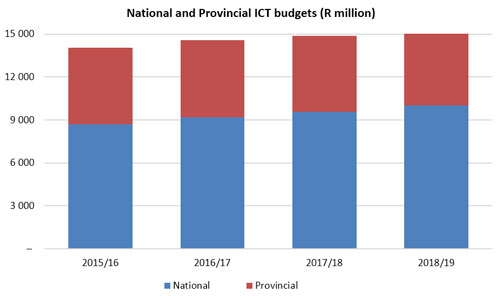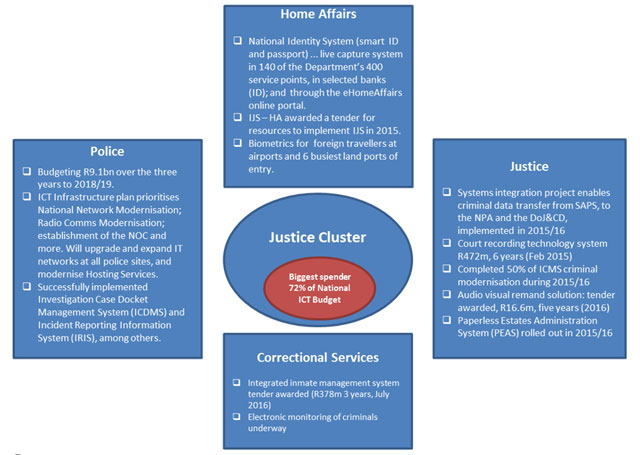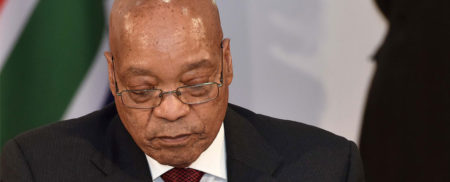
South Africa’s government spent R14bn on information and communications technology (ICT) in the 2015/2016 financial year, with limited growth expected through to 2018/2019, when spending is projected to reach R15,3bn, a new research report has found.
Analyst firm BMI-TechKnowledge’s SA ICT Spend in National and Provincial Government 2016 found that more than three quarters of the spend (R11bn) was from broadly defined computer services, followed by R3,4bn on communications and R344m on software.
Future growth in spending will be constrained by a belt-tightening exercises, BMI-T said. These include initiatives to centralise procurement of basic services such as cellphones for public servants.
“This process started in 2015, when national treasury issued a call for expressions of interest and requests for information from interested service providers for fixed and mobile communication, respectively,” the company said.
“Flowing from this, reports on the frame agreement reached with Vodacom suggest that the state could save R25bn/year through belt tightening, including R500m from changing cellphone policies.”

“Details are not yet available on the outworking of this contract in terms of actual uptake. But to the extent that it pans out, it has to be good for the fiscus and taxpayers. For some industry players, however, it simply means a chunk of revenue just disappeared,” said report co-author Brian Neilson.
There have also been strong moves to harmonise disparate systems, notably the integrated justice project, which also happens to relate to the single biggest ICT spender in the entire government, the justice cluster, Neilson said.
“Government has also made strides in corporate governance in general, going some way to addressing the lack of coordination between departments. To this end, we have seen a long string of required planning initiatives flowing from departmental ICT policies.
“These are backed up by operational plans aligned with the departmental strategic plans and an ICT annual performance plan.”
Despite this, inherent structural weaknesses persist, he said. “Much of this relates to just ‘keeping the lights on’.”

There is a “huge deficit” of available funding for major new policy initiatives, including broadband roll-out to schools.
“The 2016 medium-term expenditure framework budget was consolidated under a constrained fiscal environment with pressure being put on all departments to restrain expenditure on all fronts. In general, there are inadequate funds available to develop a proper e-government strategy,” Neilson said.
There are positive developments, however. These include the recent launch of a “g-commerce portal” — a “major step forward in government procurement” — and the appointment of a “competent” and “respected” CEO, Setumo Mohapi at the State IT Agency.
Other positives include a “massive revamp” of ICT at the South African Police Service. — (c) 2016 NewsCentral Media




